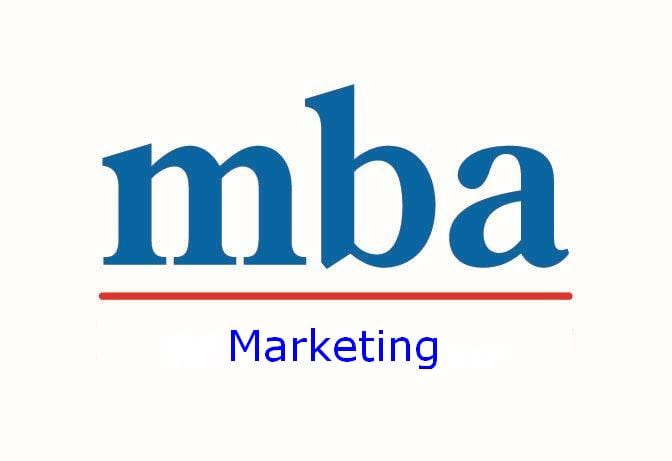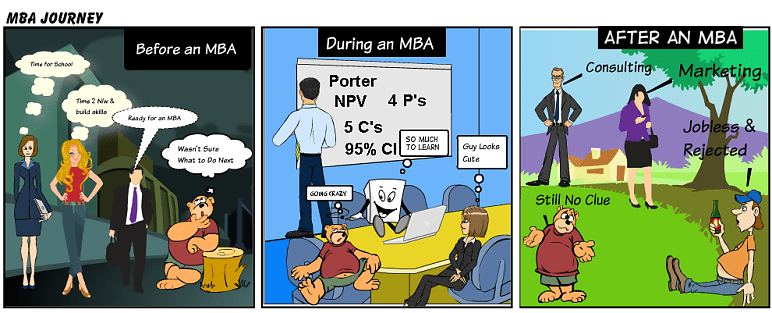Getting through a management entrance test may seem a Herculean task, and obtaining tips and techniques to crack it is vital.
Have you ever contemplated whether engineers would make better managers than CAs? Statistics clearly prove that the number of engineers clearing the CAT and getting admitted into top B-schools across the country is far higher than that of graduates from other backgrounds. In this issue we try to shed some light on the value that an engineering background can add to a management program and also how different faculties of engineering move in sync with the different specialisations of an MBA course
To begin with, we shall first evaluate how an engineering background might help one to later pursue a management career?
During the four years that one spends on an engineering college campus, one is able to develop strong analytical skills. The rigour of almost all engineering subjects helps sharpen one’s problem solving ability. A structured modular approach is something every individual eventually develops without actually making any focused effort to do so. These are the regular “take-aways” every engineer manages to gather during his four years on campus. But an engineering qualification, apart from developing these skill sets, complements a management career in more ways than one. Let us take a look at how that holds true
Finance: An engineering background along with a Finance specialisation is considered a winning combination. An MBA in Finance can make a career in two broad areas: pure finance and applied finance.
In pure Finance, one can venture into areas like banking, insurance, securities broking etc. where knowledge of financial concepts, number crunching and a questioning attitude are deemed imperative. Domain knowledge of the various functions in each of these areas can be easily acquired through an MBA in Finance. Thus in these areas, it is primarily analytical skills and structured thinking, qualities usually associated with engineering, that come in handy.
In applied finance areas like Corporate Finance, Project Finance, Investment Banking, Rating, Consulting etc, the domain knowledge of the engineering discipline is also critical. A Civil engineer, for example can very successfully and effectively handle real estate finance projects. Similarly, an MBA who has a specialisation in finance and a B.Tech in mechanical engineering background in operations can flawlessly handle valuation of a manufacturing plant. Consulting industry also heavily relies on engineers from various faculties to operationally and strategically assess the organisation and its industry in the technical context as well. A B.Tech in Electronics and Telecommunications coupled with MBA in Finance is the best bet to consult on Telecom sector and the same goes for an electrical engineer when the power sector is under consideration. Engineering graduates understand the various technical modalities better and hence their evaluation of the challenge or the problem makes for a greater degree of accuracy.
Marketing: One of the most common and popular choices for engineers; marketing is one specialisation where the technical knowledge of an engineer can prove particularly beneficial. The most important factor that determines the success or failure of the sales and marketing functions in any organisation within an industry is the ability of the salesman or marketer to understand customer’s requirements, preferences and mindset. Another important thing is the technical know-how of the product or service under consideration. An engineer with a background in a related area will definitely be comfortable with the product or service that he has to sell or market. For example, a chemical engineer would be in a better position to understand the dynamics of the pharmaceutical or chemical industry and its customers. Here, it is not only the problem solving skill and analytical approach, but also the technical know-how of the larger domain, that acts as a facilitator to sales and marketing processes.
Corporates, aware of this fact, are now increasingly adopting the “profile-matching” technique to identify prospective employees (read MBAs) that result in the best fitment for their organisations and associated functions. “Consequently”, says Harsh Grover, “companies visiting B-school campuses no longer come looking for a B.Tech and MBA Marketing combination only. Instead, for example, a specific combination of an MBA Marketing with Electronics or Electrical Engineering background is the criterion set forth by leading software firms for sales of software packages and to develop newer markets.”
Systems: A specialisation in systems by itself is a highly focused area and hence a relevant engineering background always comes in handy. For an individual from the engineering background, it is relatively simpler to create a niche in systems as compared to someone from a different background. In this dynamic corporate environment where technology platforms become obsolete overnight, the inherent ability to keep updated with the changes, one needs specialised skill sets. Someone who has difficulty in understanding how wireless communication takes place cannot be expected to understand Blue Tooth technology. Moreover, for increasing requirements in the world of Enterprise Resource Planning (ERP), a sound knowledge of various management functions and technical literacy are critical success factors. Even without any systems knowledge, an engineering graduate who has hands-on experience in various software applications and packages with moderate exposure to hardware can understand the Software Development Life Cycle, the products and the services much better than most.
Operations: A B.Tech in Mechanical engineering coupled with an MBA in Operations can develop a holistic view of the business process of any organisation and industry. He is thus in a better position to appreciate the contribution of each activity as part of the overall process. Of course, it is quite debatable whether a mechanical engineering discipline can actually add so much value to standard manufacturing processes in various industries. But having had an exposure to similar processes, the “lead time” in getting to the core of the related issues is considerably reduced.
Human Resources: Having profound industry specific knowledge is one major advantage that engineers have over the rest. Acquiring people skills is something they have to take an initiative to acquire. They become effective people managers because they can easily relate to people’s issues at the high-point of operational routines. This is one of the most critical requirements for an HR manager. This is exactly why, engineers with similar backgrounds and pursuing majors in HR are recruited by firms because the top management feels, rightly so, that the work force of the organisation will be able to relate to the HR manager who has had some exposure operationally in their line of function.
Depending upon the kind of industry under focus, engineering graduates of various disciplines are better equipped to map the business processes while their management acumen helps them integrate this knowledge with the business models to identify the key issues and work towards aligning their attributes with the business objective of the firm.
Keeping the above factors in mind, it is my advice to all engineers who are MBA aspirants to chalk out broad areas in terms of specialisation, target organisations etc while preparing for the CAT to clearly define their career direction. This will develop clarity not only during the management entrance process but also for their future career blueprint.


Leave a Reply
You must be logged in to post a comment.